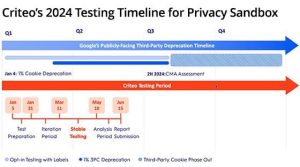— December 3, 2017
There’s been this debate going around about whether long form blog posts are necessary for your content’s success. Both sides have valid points, so how do you choose?
Some say you need to create long form articles to see your content rank higher by search engines. Others say people won’t read longer posts, so they wonder why they would waste that much effort.

After this, you’ll know how to make a decision about whether writing longer content is right for you.
The Rewards (Pros) of Writing Long Form Blog Posts
Let’s go over what you can actually achieve by writing longer articles. These are two big reasons why long form blog posts can potentially benefit you.
Search Engine Ranking
Longer articles typically rank higher because of their detailed and informative nature.*
Search engines don’t look at word count itself when choosing an article’s ranking. They do look at how beneficial your content is…
Give readers a complete understanding of the topic.
It’s not enough to write a simple definition and that’s it. Don’t neglect providing actionable insights and instructions. When people come to your article, they expect to do more than learn. They want to know how to apply what they learned.
Answer what people ask when they use search engines.
With search engines getting smarter about answering queries, people are inquiring in a more casual, natural way. They aren’t just adding a couple keywords. Instead of writing “long form blog posts,” they’re more likely to write “what is the ideal length of a blog post.”
If you want to rank for a specific topic, you need to write with this new search behavior in mind. It’s no longer about adding keywords. It’s about providing an answer to a specific question people are asking.
* Sometimes, a shorter article will rank high if it’s from a reputable source or if it gets a large number of backlinks. Also, If a blog gets a large amount of traffic to a shorter post, that article might rank higher than some of their longer but less popular posts.
Thought Leadership
Longer blog posts can also help with your quest to become a thought leader. People will see that you are knowledgeable and reliable. They’ll see that you care about helping others in the industry, and you’ll show you’re offering more than just sales pitches.
With all that you offer, you’ll build an audience that relies on your expertise. Shorter blog posts can be helpful at times. However, longer articles give you the opportunity to truly explain the topic enough for readers to do something with the information.

The Risks (Cons) of Writing Long Form Blog Posts
Now that you know the pros of long form blog posts, it’s time to look at the cons. As with almost everything in life, you have the benefits and the consequences. These are the risks to writing longer articles.
Poor Writing Quality
Forcing an increased word count simply to make your blog post longer will only hurt your content’s chances of success. Why? Because you’re writing sub par content.
Instead of being wordy or adding a lot of fluffy words, use these strategies:
Be concise and get to the point.
As I’ll go over later, people don’t have long attention spans. They won’t tolerate your forced word counts. It will be noticeable no matter how hard you try to hide it.
With writing anything, you want to get to the point as soon as possible. When you do, you have more opportunities to keep your readers’ attention. You’ll have more chances of getting them to act on your blog post’s call to action.
Choose your words wisely.
There’s a big difference between “choose the words that are best suited for the lesson you want to teach” and “choose your words wisely.” Both work, but one is clearly more succinct than the other. They both talk about choosing the right wording, but the latter is easier to digest.
Focus your word choice on those that explain your points in the best and quickest way possible. It might require a few visits to the thesaurus, but it’s worth it.
Reader Retention
Another possible issue with longer blog posts is keeping your readers’ attention – keeping them around for the full length of the article.
Your readers are busy, and they won’t stay for a longer article unless you give them reasons to keep reading. These are two ways you can do that:
Make your content scannable.
How do you get readers to stick around when you’re explaining something complex? Add descriptive headings and subheadings. Also use bulleted lists and text formatting. These methods will make your blog post scannable, allowing readers to learn the gist of your topic without having to read word for word.
When you successfully make your blog post scannable, you don’t always lose your readers there. They might find your main points valuable enough to read deeper into your post. Your writing efforts will not be in vain.
Use visuals to emphasize points.
People don’t like text, especially block text. If they visit your blog and see a huge chunk of text, they’ll bounce right off your site. Visuals are key to keeping reader attention.
A visual doesn’t have to be (and probably shouldn’t be) a simple stock image or multiple. You want them to provide value to your readers by explaining your main points in a noticeable way. Yes, you might need to stick to stock photography if you’re on a tight budget, but consider adding text overlay describing each of your biggest points. You might also consider creating an infographic of any list posts you might create.

So, What’s the Best Length for a Blog Post?
It would be so helpful to know a universally accepted blog post length, right? Unfortunately, blogging isn’t that simple.
Your best blog post length depends on a couple big factors:
Your Industry
Different industries have different audiences with different needs and preferences. Neil Patel goes into greater detail about lengths per industry in his article on the subject:
How Long Should Your Blog Articles Be? (With Word Counts for Every Industry)
In the article, an example Neil includes is Marketing and Advertising. He explains that the ideal blog post length is between 2,500 and 3,000 words. That’s a lot longer then, say Gadgets, which is 300 to 500 words.
So, in summary, your blog posts might not need to be long to be effective. Instead of focusing on word count, focus on your industry audience and whether they want to even see long form blog posts from you.
Your Capabilities
Going along with length per industry, you also need to evaluate your own capabilities – whether you actually have the resources necessary. If you’re not able to produce consistently at the length that works best, you need to consider your options.
Hire more writers, whether freelance or full time. Consider redesigning your editorial calendar and publishing schedule. If you can only produce one article a week, change your calendar to reflect that.
Even though your industry produces longer articles, you need to have the necessary resources to keep up. Without those capabilities, you might want to stick to the blog post lengths you’re able to produce – even if it’s a lower word count. Your focus should be on writing quality content first.
That’s a basic evaluation of the different pluses and minuses of writing long form blog posts. It’s not supposed to be about following a strict guideline.
It’s about knowing your audience and what gets them to convert. If they don’t want to read a longer article, or if the post quality suffers, stick to shorter posts.
On the other hand, say you’re trying to attract an audience that doesn’t know about you yet. Focusing on producing longer articles might be better because it’ll improve your search engine ranking and thought leadership. That is, you need to maintain high quality content.
Do you write long form blog posts, or do you stick to shorter ones? What length has proven most successful for you? Let others know your success story by leaving a comment below!
Digital & Social Articles on Business 2 Community
(48)






